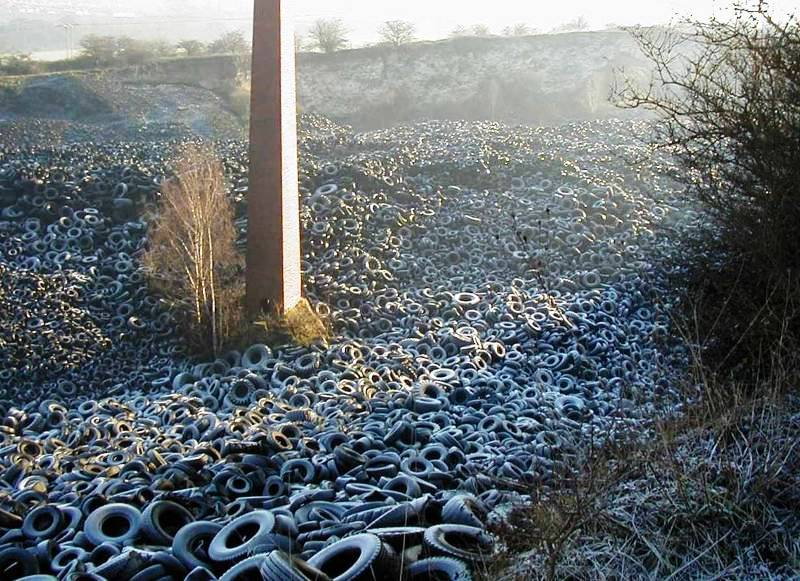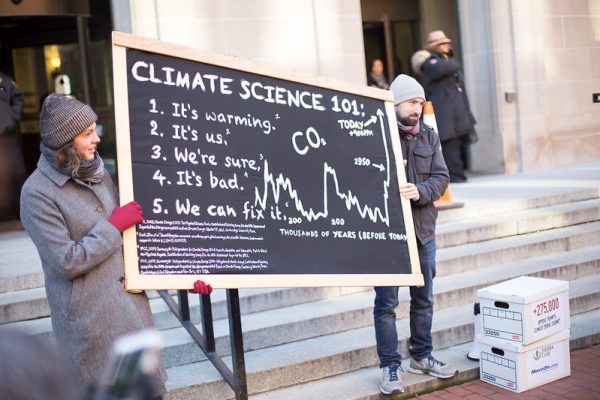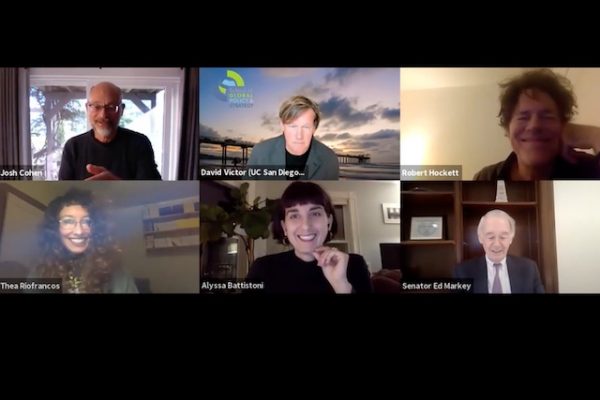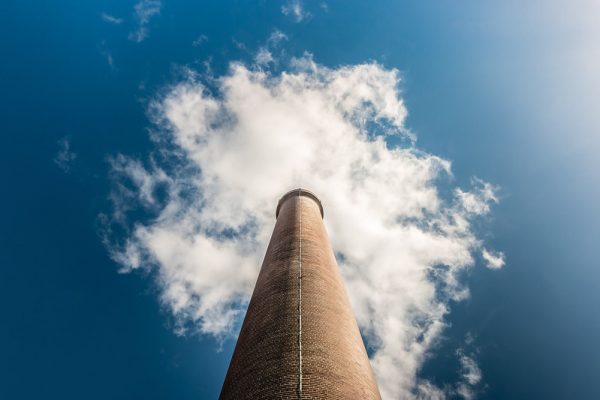Historian Adam Tooze has argued that COVID-19 is the first economic crisis of the Anthropocene, a term encapsulating the idea that human impact on the environment and climate is so extreme that it has moved us out of the Holocene into a new geological epoch. While this argument remains the subject of deep disagreement among experts, those advocating for the Anthropocene emphasize that humans have so drastically altered the environment that we have become agents of transformations we cannot reliably control. Indeed, we are daily reminded of these effects by extreme weather events, species extinctions, and new global health emergencies.
The most pressing and most obvious of these forces is the novel coronavirus, which has exposed the frailties of political systems in so-called advanced democracies in collectively terrifying but individually unsurprising ways. As with other pandemics, the least powerful and most insecure members of society are those who suffer the most. If one of the challenges posed by the Anthropocene is to rethink the evaluative and ecological foundations of our politics in dramatic new ways, it might help to make better sense of the challenges we face—and to build a better and fairer world after neoliberalism—to explore the convoluted route by which we have arrived at this point. The pandemic struck at a moment of deep-seated disaffection with democratic politics after forty years of neoliberalism and the rise of new forms of authoritarian and populist politics.
Facing his own era-defining political crisis, German chancellor Gustav Stresemann (1878–1929) took the title of a 1920 silent film starring Bela Lugosi, Dance on the Volcano, and turned it into a serious metaphor by which to describe the economic threats faced amid the rise and decline of the Weimar Republic—from military defeat and a quietly successful democratic revolution to economic catastrophe, militaristic nationalism, and rising anti-Semitism. While the early 2020s are certainly not the late 1930s, the metaphor remains convincing.
Can today’s crises inspire action at the scales required to think about planetary sustainability? Why has it proven so difficult politically to act in the face of ample evidence of an increasingly uninhabitable Earth, to which now can be added the threat of COVID-19?
During the pandemic, Tooze has disinterred German sociologist Ulrich Beck as an unlikely Virgil to guide us through this uncertain modern purgatory. Beck’s thinking about what he termed “risk society” seems even more pertinent during an Anthropocene pandemic than it did thirty-five years ago.
Reflecting on environmental fallout, Chernobyl, and ecological politics in 1980s Germany, Beck asked what it meant to live amidst the new risks of modern society—from disease and radioactive fallout to still broader forms of ecological calamity. How, he wondered in Risk Society (1986), can we “live on the volcano of civilization without deliberately forgetting about it, but also without suffocating on the fears” that erupt from within? This combination of scientific knowledge of threats, alongside a fear of the invisible agency of both viral and radioactive hazards, offers a perverse combination of hypermodernism amid a sort of quasi-religious fear and primitivism around the unseen. Such an unstable compound formed part of Beck’s search for a more “reflexive” form of modernization. As he put it in Ecological Politics in an Age of Risk (1995), society in the age of climate crisis—when we are “confronted by the challenges of the self-created possibility, hidden at first, then increasingly apparent, of the self-destruction of all life on this earth”—passes through two stages.
The first offers technocratic solutionism, grounded in models of economic growth and progress, which allows modern experts something like “wardship” of Earth. And while democracy might “twitch” at moments of mismanagement by technocrats, it can do so only after its practical “demise” as a political force in the first place. During this stage, all trends point toward ever greater power in the hands of unelected experts, while democracy continues to function as an ideological illusion—a spell cast over the world by a word only loosely connected to how power is exercised in day-to-day politics.
The second stage of risk society, what Beck termed “hazard civilization,” takes place at the level of knowledge production. As we become increasingly aware of the fragility of our situation and the proximity of existential risks and hazards, we obviously become more and more beholden to experts for understanding and surviving the threats they have done so much to inform us about. Yet at the same time that they offer complex and rarefied knowledge about problems that threaten our collective existence, scientists and experts show—in full view of the public—the powerful disagreements, divergences, and dissonance among themselves in the production and distribution of expert claims. Just think of the politicking behind the massive documents and appendices of the 2018 report by the Intergovernmental Panel on Climate Change, which focused on the need to keep future warming within 1.5 degrees Celsius. In turn it quickly became a rallying cry, taken up particularly by those on the frontline of climate change in the Caribbean, suggesting that this was really about “1.5 to stay alive.”
As figures such as Bruno Latour have emphasized, increased awareness of science as an argumentative social practice and continuous process of negotiation and interpretation serves two conflicting functions. On the one hand, it provides intellectual emancipation from ignorance: recognizing complexity and uncertainty is a form of liberation. But on the other hand, it also breeds skepticism about scientific knowledge. This can, in turn, make possible reactionary forms of critique, quickly taken up by institutions and ideologies seeking to benefit from the status quo. Such a state of affairs leaves us even further adrift, for the insidious threats of risk society and hazard civilization are also social and massively unequally distributed. As Beck wrote, in the face of massive hazards and existential threat, what use is a society that protects individuals in their acquisition of extreme wealth and that legitimates massive levels of income and wealth inequality through property rights at the same time that it “legalizes large-scale hazards on the strength of its own authority, foisting them on everyone, including even those multitudes who resist them”?
In his account of ecological politics in this hazard civilization, Beck paraded the tragedy and irony of atomic modernity as a social structure of “non-liability.” Its distinctive features lay in “turning that which controls the production of hazards—law, science, administration, policy—into its accomplices.” This “theatre of the absurd” in turn “renders all resistance idle,” for while it is impossible for society to avoid risk, the “institutionalized safety pledge” social institutions and experts offer interprets the actual presence of hazards as forms of system failure rather than as failures of social relations that have already given themselves over to technocratic management. Social institutions have become “prisoners of their own safety technology,” a perverse summation to the solidaristic social-insurance schemes underpinning the original emergence of the modern welfare state.
Beck’s alternative vision was to provide space to ground multiple forms of what he called “sub-politics”: a return to something like a politics of democratic accountability expressed locally as a form of collective irresponsibility, when set against the paradoxical realities of the new technocracy governing ecological risk. For Beck this was the “antidote” to the pathologies of hazard civilization. But he was deliberately non-stipulative about what direction these forms of politics might take, which makes it sound rather abstract at first. Sub-politics is about fostering spaces for individual and collective political judgment within which local groups and communities can learn to deliberate, think, and act in a world of perpetual risk and hazard—but free from the rigid hierarchies of technical solutionism and an uncritical acceptance of whatever expert knowledge provides as the only justification for political choice-making.
How such processes and places work in practice will have to be determined on the ground, in a bottom-up process of democratic organizing. The politics of organizing has always been crucial to the successes and failures of ecological politics, and for Beck it seems like an activist model of democratic self-government in sub-political perspective is a better antidote to hazard life than the precautionary anti-majoritarianism of some political and constitutional theorizing. Such spaces might also help to avoid the temptation simply to habituate ourselves to a “new normal” with all its abnormalities—as something beyond our control or ken—or to seek solace in the return to earlier times of apparent simplicity and order, with strong leaders and grateful subjects. In the face of current challenges, the search for technological fixes, constitutional amendments, or even forms of constitutional dictatorship may seem emancipatory, but in fact they only bind us to the status quo. They may provide models for salvaging democratic politics tomorrow, but they do so by pre-committing ourselves to contemporary values. What, though, if today is precisely when we need to do things differently?
Others look to a new ethics of interspecies care between kith and kin as a way of “staying with the trouble,” in Donna Haraway’s terminology. Small wonder, perhaps, that the promise of environmental care and mobilization for the sake of planet Earth and future human generations seem more likely to find a coalition of the willing through nonstate affiliations such as religious groupings, which see themselves as acting above the grubby secular needs of nationalist politics. Amitav Ghosh has laid this out clearly as one way that future historians might look back on this period of failure—one that he calls “the great derangement”—with perhaps a little more sympathy once we recognize the exclusionary nature of a political and economic modernity open only to a relative minority in global terms.
More recently still, proposals for a Green New Deal have offered seemingly novel model political economies, mobilizing groups at both national and what we might think of as various sub-political levels, as well as across generational divides. Yet in so doing, they indicate some of the structural problems connecting the sub-political to the demands of an uninhabitable Earth or a politics of the Anthropocene, which might require a still-more radical rethinking of the very concepts, values, and priorities that underpin modern democratic politics.
For even as such challenges to the mainstream play out and support forms of localism and radical democracy, they often continue to work within the conceptual horizons of a pre-Anthropocene world. Perceiving the urgent need to move beyond forty years of neoliberalism, they hark back—often rhetorically, sometimes substantively—to the allure of the original New Deal. Bypassing the last four decades, we plunge back to forms of Keynesian demand management where government spending, taxation, and plans for full employment in new sustainable jobs are required to finance this transition—meaning a sort of last hurrah for Old World growth and stimulus is the necessary prerequisite for moving into a new world running along a “slower groove,” as Kate Aronoff, Alyssa Battistoni, Daniel Aldana Cohen, and Thea Riofrancos put it in A Planet to Win: Why We Need a Green New Deal (2019).
Such attempts to revive older models of growth, employment, interest, and money in new forms might not be enough to meet the demands of Beck’s challenge. Indeed, it often remains unclear what it might mean to go beyond neoliberalism: there are such diverse understandings of what the term means in theory and practice, and what its history might have to teach us about a future beyond it.
Consider two of the most powerfully articulated positions in contemporary scholarship on the topic.
First is the critique of neoliberalism exemplified by Wendy Brown, who sees it as an “undoing” of the demos by self-conscious political choice. Unevenly distributed across the globe, neoliberalism on this account is a “field of oscillations” broadly set upon rendering human interactions and subjectivities into little more than market calculations of individual and comparative advantage. It stealthily weakens any commitment either of individuals or of government to solidaristic ties of affection and mutual aid as beyond the scope of policy-making and detrimental to the acquisition of wealth. Neoliberalism, in this account, is an essentially antidemocratic project: it professes to depoliticize and thereby to naturalize the realm of the economy and of economic competition as the essential measure of human success.
Brown argues, against this regime, that democracy has only ever advanced through the revolt and reforms demanded by the excluded, and it is thus premised on a view of politics grounded in the hope for a better, though perhaps never fully realizable, future. Once a market calculus is applied to democratic politics or to society more broadly, a new kind of political rationality takes hold. Contemporary neoliberalism has conquered a progressive commitment to welfare, offering in its place the simplistic mantra that the state and the economy are separate entities; that the market is smart and rewards according to talent; and that the state is dumb, slow, and corrupted by sinister interests.
For writers such as Neal Ascherson, this suggests that whatever a world beyond COVID-19 looks like, it must surely mean the end of neoliberalism and the affirmation of public goods, not just individual ones. What sort of model of society might that be? As Will Davies recently suggested, democracies in the age of COVID-19 remain stuck between two basic options. One is an imagined community—whether the nationalism of contemporary right-wing populists and the so-called “left behind” or the solidaristic left version—harking back to a better time when communities were close, patriotism was natural, and people looked out for one another’s children. The other option is to view society as an amalgam of individuals and groups into vast networks, part of an increasingly interconnected world through forms of technology they might nonetheless remain physically distant from. Its roots lie in the sociological and telecommunications revolutions of the nineteenth century, adapted for a broadband era. Whether mythical, nostalgic, or nodal, such choices still fall victim to the criticisms laid out by Beck.
In contrast to Brown’s political theory of neoliberalism, a second approach is historical. The work of Angus Burgin, Philip Mirowski, and Dieter Plewhe has tracked the roots of modern neoliberalism back to the 1938 conference Colloque Walter Lippmann in Paris and the Mont Pèlerin Society, founded in Switzerland in 1947 by figures including Friedrich Hayek and Milton Friedman. This historical argument emphasizes the organizational effectiveness of an intellectual effort to construct a new liberalism in the wake of war and depression. Intellectual historian Quinn Slobodian extended this argument in his 2018 study Globalists, which recasts the origins of neoliberalism as an attempt to shift political power away from nation-states toward supranational federal architectures—from the League of Nations to the World Trade Organization. This vision began life as a sort of updated Habsburg Empire model, wherein cultural diversity could thrive under political structures too complex to be captured by bureaucratic or national interests. (Hayek and his teacher Ludwig von Mises saw World War I as a calamitous triumph of nationalism and socialism within the modern nation-state.)
Such complex, supranational structures were once thought to be among the best ways to save capitalism not only from itself, but from the distortions of statist politics. Neoliberal versions of this history were a capitalist mirror to wider, anticolonial critiques of the nation-state that developed at the same time. But what trajectories link the historical dynamics of the modern statist politics that won out against these competing visions into the uninhabitable Earth of the Anthropocene?
In Climate Leviathan (2018), Geoff Mann and Joel Wainwright give a typology of various political structures that might emerge in response to climate change. One option is “Climate Leviathan,” a system of global capitalism premised upon the already wealthy and powerful being motivated to save the planet for their own interests. Another vision is “Climate Mao,” which responds to the climate crisis not by global capitalism but by seemingly anti-capitalist and autarchic blocs. Still another option is “Climate Behemoth,” a reform of reactionary populism at the level of the nation-state. But beyond these options, Mann and Wainwright contend, we might also imagine some sort of Climate X, a radical democratic rethink of the forms of sub-national as well as international politics that might reconnect economics and politics in new forms of value and accounting.
Amid the pandemic, we have seen the domestic power of nation-states and the international power of central bankers working in tandem to stabilize the structures of financial capitalism—all in an effort to maintain the status quo ante. But we have also seen a dramatic display of the state’s capacity to demobilize its economy in the name of protecting health. This offers a novel perspective from which to think about politics after neoliberalism and in the face of the Anthropocene. But the temptation to return to the old regime is immense. Who can say, then, that the project of neoliberalism has definitively run its course? Perhaps not even the pandemic has condemned it to the dustbin of history. But it is surely the challenge of the Anthropocene that provides the real trigger for thinking about a radically new way of conceiving of politics, rather than one that gives in to the temptations of the old.
Among those major challenges are questions of value: what we owe nature, and what we owe to future generations. Such issues might embolden us to think anew about questions of reparations at the bar of ecological indebtedness, within which other forms of structural-historical injustice (such as racial slavery and patriarchal oppression) arose and continue to inform our present. The Anthropocene also questions conventional thinking about population, economic limits to growth, unevenly distributed forms of inequality, and the relationship between humans and other animals.
Much as with Beck’s earlier treatment of ecological politics in an age of risk, these are problems that it is tempting to view through the prism of either a technocratic-legalist paradigm or a mitigation-adaptation perspective. The real challenge laid out by Beck, and through Anthropocene narratives and epistemologies today, is the thought that we might be better advised to drastically revise the established conventions and expectations around the terms we use to interrogate politics and economics, transfiguring both their histories and their values.
Rethinking the history and the ideas that shaped our politics into the present, we might be able to conceive of new and alternative forms of community. We might also, at the very least, go back to a more historically sensitive tradition of thinking about political economy, prevalent in the period before and during World War I, for hints about how to proceed to a politics beyond neoliberalism—particularly if that history can help us to see the longue durée of neoliberalism and its critics, rather than only its most recent forms. Consider antitrust progressives in the United States, historical political economists in Europe, and British political economists who worked out the relations between wealth, welfare, and the principles of taxation for negative externalities such as pollution: all offered ways of seeing the interconnections between politics, economics, history, and the environment that are more capacious and synthetic than anything modern neoliberalism and mainstream economics have to offer. All, as well, value complexity over predictive simplification.
Only by reconnecting questions of value to the properly embedded interrelationship between politics and economics can these visions become thinkable anew. The pandemic at least shows that it really is a very old question about the value of political economies or market societies that will have to bear the foundational weight of any future-oriented, progressive politics of the Anthropocene. Whether such rethinking might issue in the achievement of radical demands for forms of politics grounded in love, justice, and radical hope—or just follow the line of least resistance back to business as usual—remains to be seen. But one thing is certain: merely “following the science” will not get us anywhere close to a more progressive future, with or without the particular threats posed by this pandemic.









